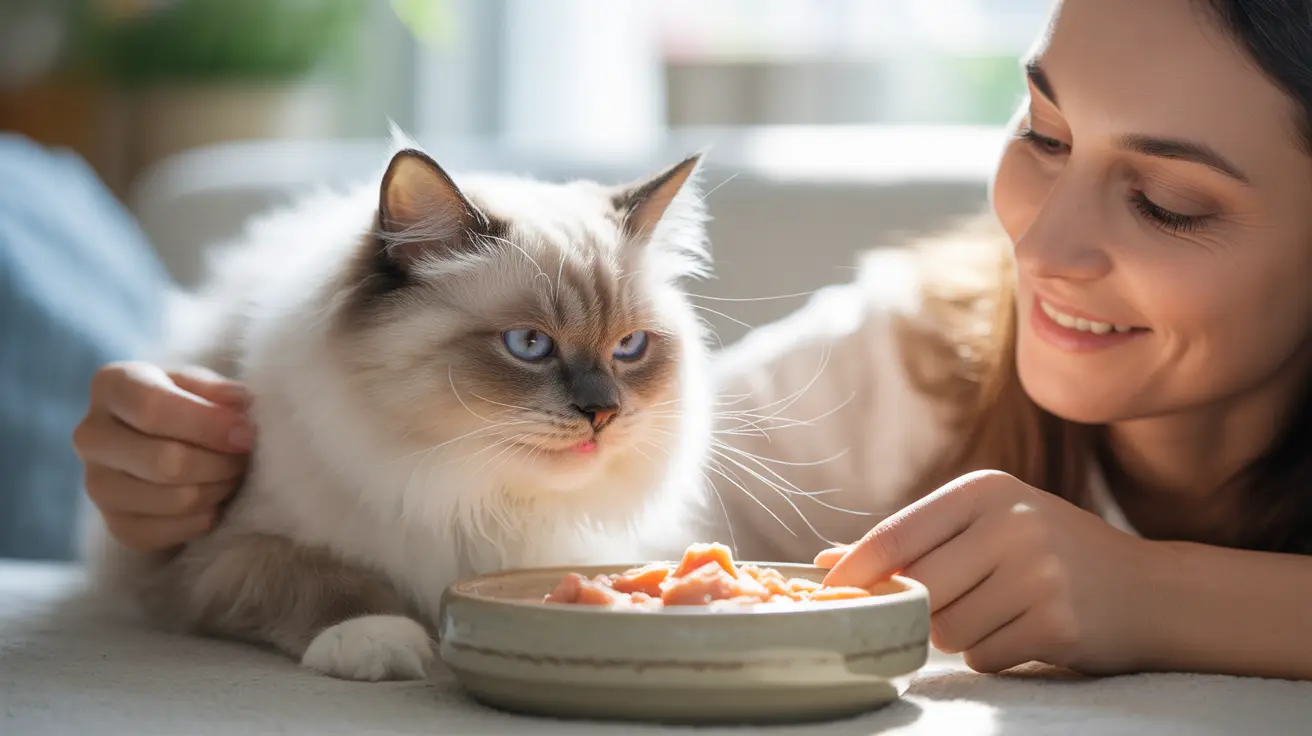If you've noticed your cat seeking attention or pets during mealtime, you're not alone. Many cat owners observe this fascinating behavior, where their feline companions seem to crave physical contact or proximity while eating. This phenomenon, often called "affection eating," has deep roots in both instinctual and emotional factors.
Understanding why cats enjoy being pet while eating can help strengthen your bond with your pet and ensure they maintain healthy eating habits. Let's explore the various reasons behind this common feline behavior and what it means for your relationship with your cat.
The Instinctual Need for Security
In the wild, cats are both predators and prey, making them particularly vulnerable while eating. Their heads are down, focused on their food, which naturally reduces their awareness of potential threats. This instinctual vulnerability may explain why domestic cats seek human presence during meals.
Your cat likely views you as a trusted protector, and your presence during mealtime provides an extra layer of security. This behavior mirrors how wild cats often eat in loose social groups to maintain safety while feeding.
The Social Bonding Component
Cats form strong social bonds with their human caregivers, and mealtime presents an opportunity to reinforce these connections. When your cat seeks pets while eating, they're displaying trust and viewing you as part of their family group.
Research has shown that physical contact during feeding can trigger the release of oxytocin, often called the "bonding hormone," in both cats and humans. This chemical response helps strengthen the emotional connection between you and your pet.
Stress and Anxiety Factors
Some cats may seek extra attention while eating due to underlying stress or anxiety. This is particularly common in situations involving:
- Recent adoption or rehoming
- Changes in household routine
- New pets or family members
- Environmental modifications
- Previous negative experiences with food
In these cases, your presence and gentle petting can help create a sense of safety and normalcy during meals.
Early Life Experiences and Learned Behaviors
Cats who were hand-fed as kittens or raised in shelter environments often develop strong associations between eating and human interaction. These early experiences can create lasting preferences for company during mealtimes.
Additionally, positive reinforcement through regular feeding routines and attention can train cats to expect and desire human presence while eating.
When to Be Concerned
While affection eating is generally harmless, there are situations that may require attention:
- Complete refusal to eat without human presence
- Sudden changes in eating habits
- Signs of stress or anxiety during meals
- Decreased appetite or weight loss
- Excessive neediness during mealtimes
If you notice any of these signs, consulting with a veterinarian can help rule out underlying health issues.
Frequently Asked Questions
Why does my cat want me to be near or pet her while she eats?
Your cat likely seeks your presence while eating due to a combination of instinctual security needs, social bonding, and learned behavior. Your presence makes them feel safe and protected during a vulnerable activity.
Is it normal for cats to seek affection or human presence during mealtime?
Yes, this is entirely normal behavior for many cats. It often stems from their natural instincts and social bonding needs, particularly if they've had positive experiences with human interaction during meals.
Can stress or anxiety cause my cat to only eat when I pet or watch her?
Yes, stress and anxiety can lead to dependent eating behaviors. Cats may seek reassurance through human presence, especially during times of change or in new environments.
How can I help my cat feel more comfortable eating alone without my presence?
Gradually reduce your proximity during meals while maintaining a consistent feeding schedule and location. Create a quiet, safe eating space and use positive reinforcement to build confidence.
When should I be concerned if my cat refuses to eat unless I'm petting her?
Be concerned if your cat completely refuses food without your presence, shows sudden changes in eating habits, or displays other unusual behaviors. Consult a veterinarian if these issues persist beyond 24-48 hours.
Understanding and accommodating your cat's mealtime preferences can strengthen your bond while ensuring they maintain healthy eating habits. Whether your cat enjoys company while eating or prefers to dine alone, the key is providing a consistent, safe, and comfortable feeding environment.






